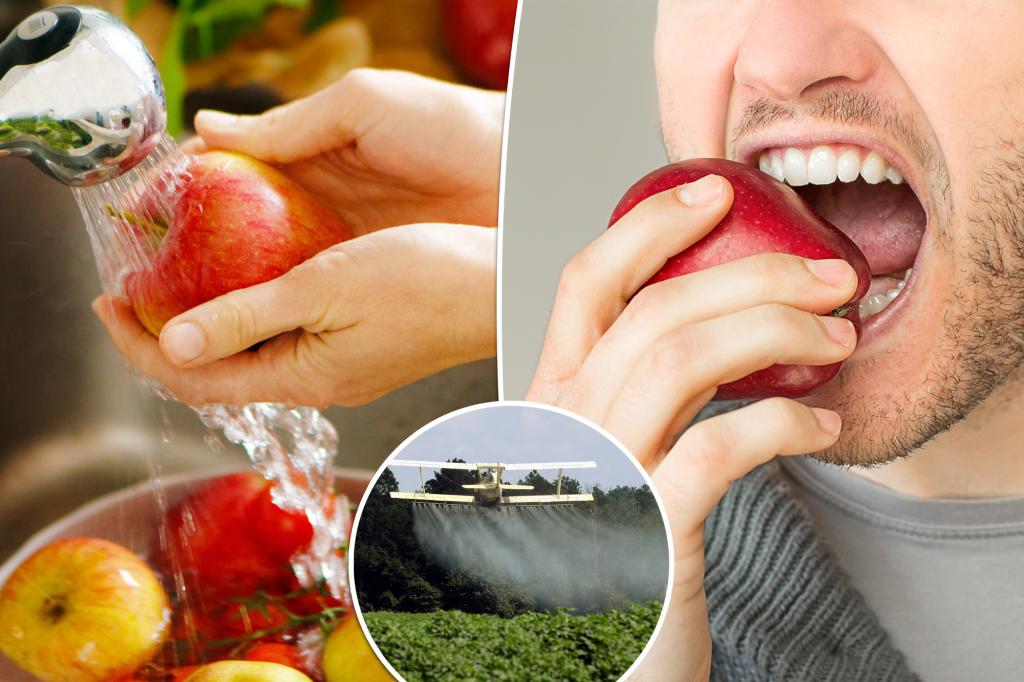A new study published in the American Chemical Society’s journal Nano Letters suggests that simply washing fruit may not be enough to remove toxic chemicals and pesticide residue. The study found that cleaning operations cannot wholly remove pesticides from fruits and that the chemicals can penetrate both the peel and pulp layers of an apple. However, the study also found that peeling fruit can effectively eliminate nearly all pesticide residues, contrasting with the frequently recommended practice of washing.
The study’s author, Dongdong Ye, a professor at China’s School of Materials and Chemistry at Anhui Agricultural University, hopes that people will reach for the peeler instead of panicking about pesticide exposure. While peeling fruit may help reduce chemical exposure, it also removes valuable nutrients found in the peel. According to Healthline, a raw apple with skin contains significantly higher levels of vitamin K, vitamin A, vitamin C, calcium, and potassium than a peeled apple. However, the study found that the risk of pesticide ingestion from fruits cannot be avoided by simply washing the fruit, making peeling a more effective method for reducing pesticide exposure.
In response to concerns about pesticide exposure, advocacy organizations like the Environmental Working Group (EWG) have released lists like the “Dirty Dozen,” which highlight the most pesticide-prone produce. Apples were listed as number 8 on the EWG’s list of pesticide-packing produce. Additionally, Consumer Reports found concerning levels of pesticides in 20% of the fruits and vegetables tested, calling for stricter regulations on pesticide use. However, the USDA maintains that the majority of produce tested meets legal limits for pesticide residues and does not pose a risk to consumers’ health.
Despite the conflicting reports on pesticide residues in produce, the EWG notes that the health benefits of a diet rich in fruits and vegetables still outweigh the risks of pesticide exposure. However, for those looking to limit exposure, opting for peeling off the pesticides and choosing organic produce, which uses natural pesticides, can help reduce exposure to harmful chemicals. While washing fruit is not enough to eliminate pesticide residues, peeling can be an effective method for reducing exposure. Consumers can make informed choices about their produce consumption by considering the potential risks of pesticide exposure and taking steps to mitigate those risks.


